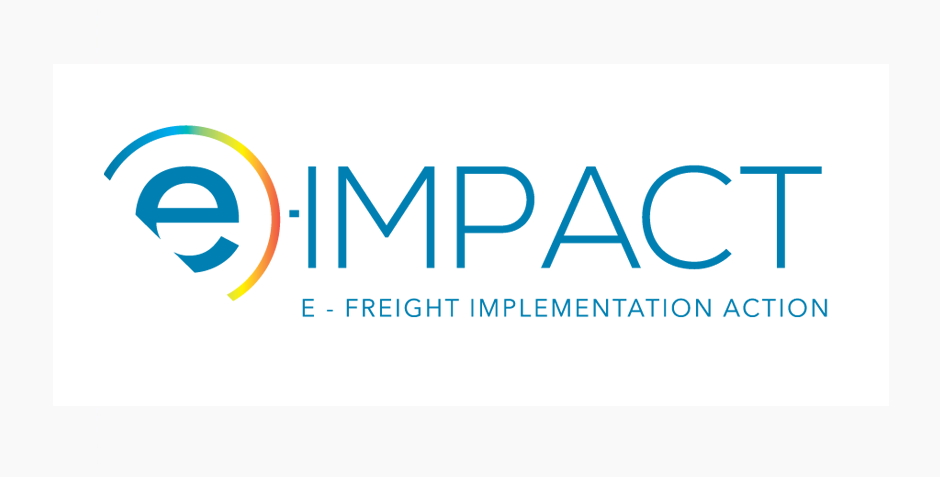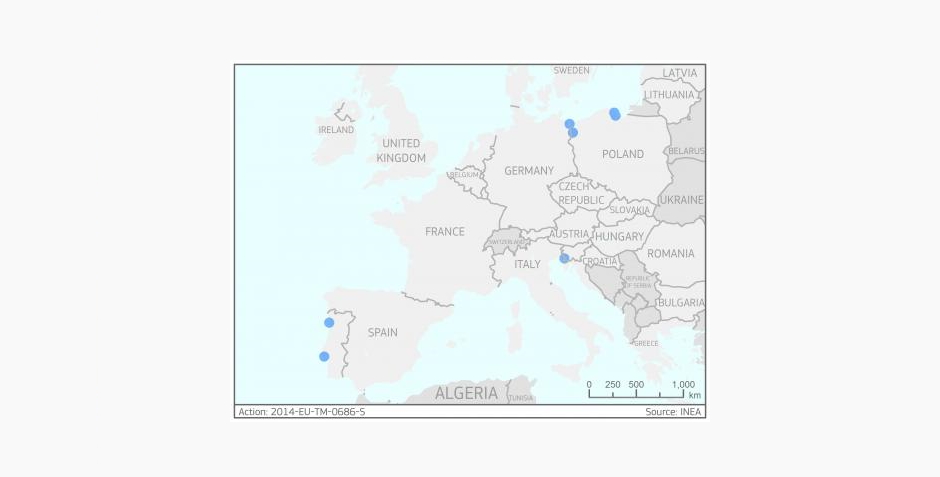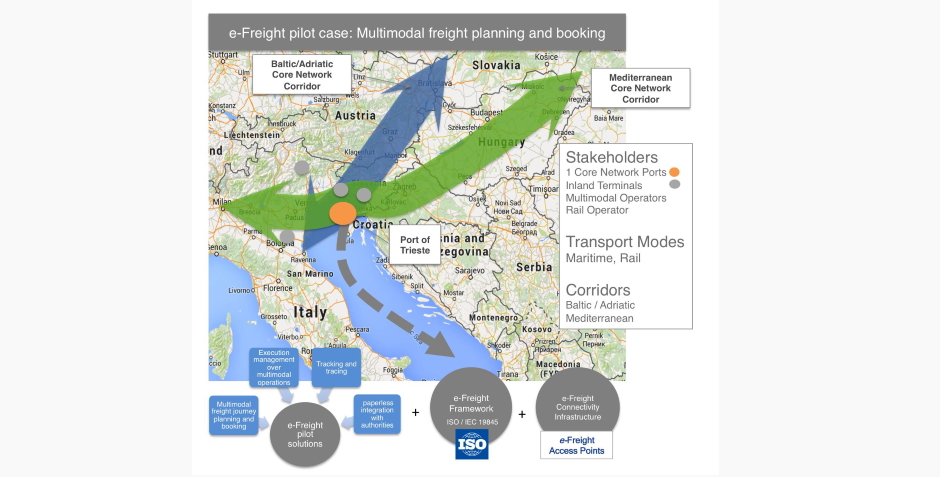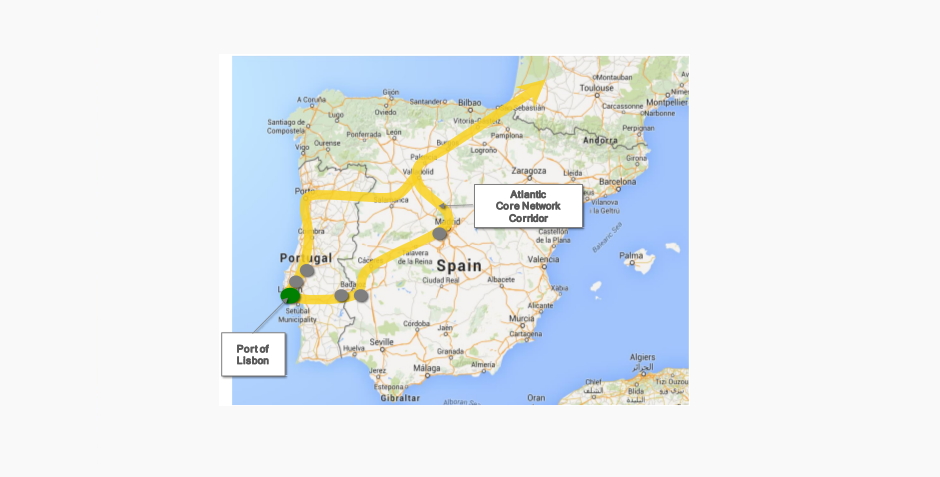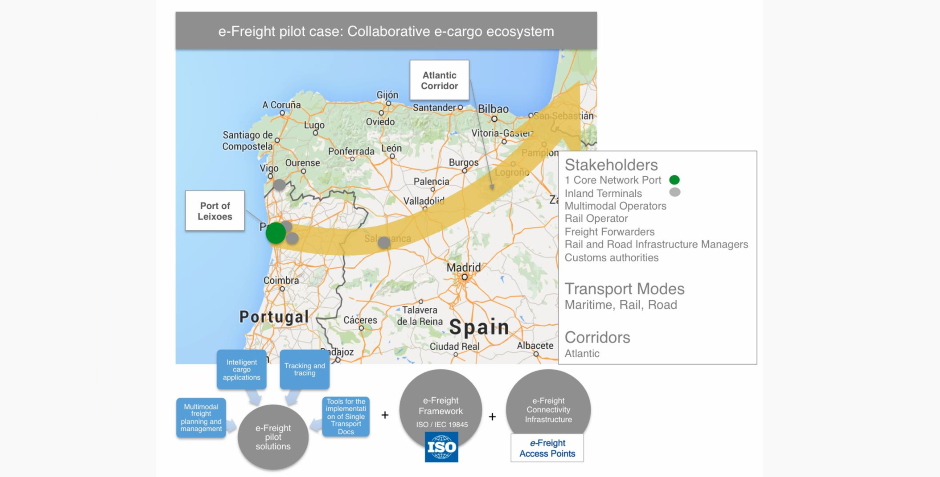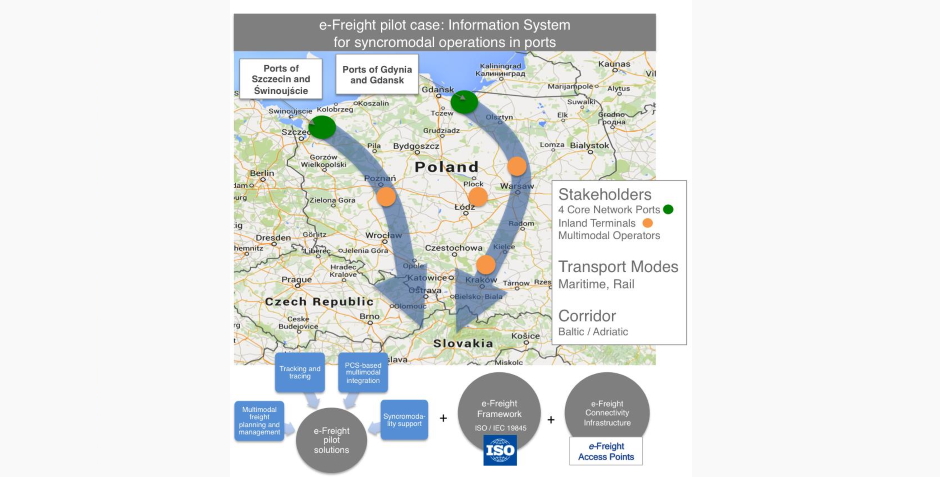e-Impact
Description
The purpose of the e-Impact project is to implement the e-Freight standard and e-Delivery infrastructure developed in EU funded projects like e-Freight and iCargo in real operations along 3 corridors of the TEN-T Core Network: The Atlantic, Mediterranean and Baltic / Adriatic corridors.
The business cases in the project involve shippers, logistic services providers and authorities.
Benefits for the involved parties are:
- Improved efficiency, by sharing planning and execution data to synchronize inter-modal transport and to optimise loading;
- Reduced costs, by automating data exchange between different stakeholders’ systems, including customs and administrations;
- Increased business, by maximizing utilisation of the infrastructures, vehicles and logistics resources in the target corridors.
The business cases will act as forerunners for market adoption and full-scale deployment of e-Freight capabilities on a European and international scale, producing:
- Applied e-Freight solutions demonstrating concrete benefits in industrial implementations, involving regular cargo flows and operational processes;
- Studies assessing the economic viability of e-Freight solutions on the individual stakeholders, on corridor level, and across different corridors of the Core Network;
- Guidelines and requirements for migrating to e-Freight from current systems and architectures, shared and consistent with e-Freight initiatives carried out on European level.
Collaboration has been established with countries in Asia and the project aims to demonstrate interoperability and connectivity between European and Asian stakeholders.

